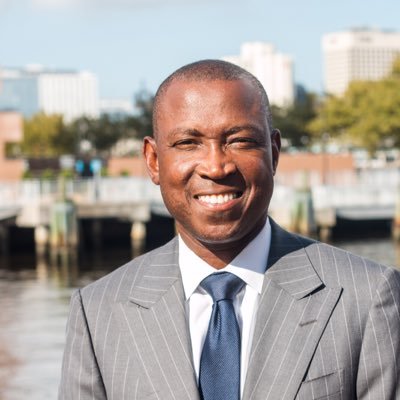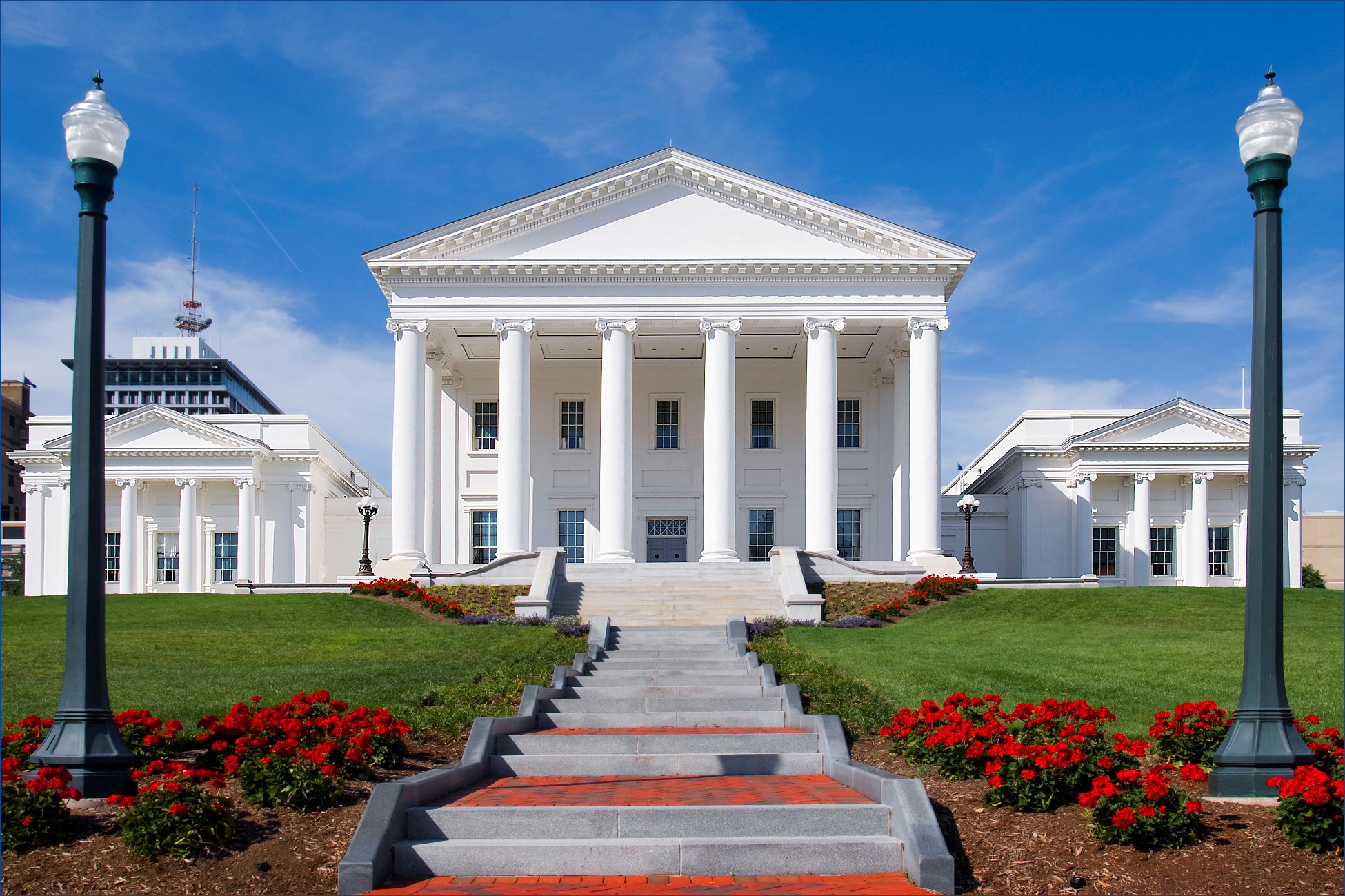Virginia voters gave Democrats control of the legislature. What will it mean for policy?
by Graham Moomaw, Virginia Mercury
The two-year period before the arrival of Gov. Glenn Youngkin was the first time in decades that Democrats controlled both chambers of the Virginia General Assembly. Come January, they’ll be back in charge.
That sets up a policymaking dynamic that hasn’t been seen in Virginia since the 1990s: A Republican governor working with a fully Democratic legislature.
Because Youngkin will still be able to veto anything the slim Democratic majorities send to his desk, it won’t be anything like the burst of legislative breakthroughs on big topics that Democrats pushed through in 2020 and 2021. With a 21-19 majority in the state Senate and a 51-49 majority in the House of Delegates, Democrats lack the supermajorities needed to override vetoes and enact new laws over Youngkin’s opposition.
After a redistricting-fueled retirement boom earlier this year, more than a third of the candidates elected to General Assembly seats last week will be new to the body, adding a new element of unpredictability to how votes might shake out.
It’s unclear what might top the state’s legislative agenda once the new legislature is seated, but here’s a look at what last Tuesday’s results could mean for a few big policy issues.
A new push for abortion rights
It wasn’t a sure bet Republicans would have had the votes to pass Youngkin’s 15-week abortion ban even if they won majorities. But new limits on abortion are now a nonstarter after Democrats won on promises to stop them.
Winning both chambers gives Democrats the chance to play offense on abortion rights, and they don’t need the governor to do it.
At a post-election news conference last week, abortion rights advocates said they want the new Democratic majorities to begin the multi-year process of amending Virginia’s constitution to protect abortion access.
“Our victory on Tuesday allows us to work with these majorities to advance a constitutional amendment that will be on Virginia’s ballot in 2026 when we keep an abortion-rights majority in 2025,” said Jamie Lockhart, executive director of Planned Parenthood Advocates of Virginia.
Under Virginia’s system, constitutional amendments have to pass the General Assembly two years in a row, with an election in between. That means the General Assembly would have to pass an abortion rights amendment in the 2025 and 2026 sessions, with voters having the final say in the fall of 2026.
Though the Democratic-controlled Senate already passed an abortion rights amendment earlier this year that failed in the Republican-led House of Delegates, Lockhart indicated the amendment’s specifics could change now that Democrats have the ability to give it initial passage.
A similar abortion rights constitutional amendment that passed in Ohio this week included clear language allowing abortion limits past the point of fetal viability, usually around 24 weeks. The initial amendment proposed in Virginia didn’t mention fetal viability as a valid reason to restrict abortion access, leading critics to argue it could override Virginia’s existing law banning abortion in the third trimester. During the campaign season, many Democratic candidates said they wanted to keep Virginia’s abortion laws unchanged.
A shift on education?
Youngkin has portrayed himself as being at the vanguard of a parents’ rights movement by restoring a preeminent role for parents in K-12 schools that he says have been derailed by left-wing leaders. Democrats have attacked him as an enemy of public education and accused him of stoking culture war fights over critical race theory, sexual content in books and accommodations for transgender students.
Those fights could very well continue, but the election results showed there’s a limit to the conservative pushback over the direction of public schools. Democrats can try to repeal or roll back some of Youngkin’s education policies, but the governor can still wield the veto and his appointees will continue to control the Virginia Board of Education. A stalemate on more controversial school-related issues could precede a pivot toward the more nuts-and-bolts elements of education, such as funding levels, teacher pay, testing reform and student performance.
After campaigning on more school funding and better pay for educators, Democrats and their allies hailed Tuesday’s results as a clear victory for public education.

“This means that our communities want to fully fund our public schools,” House Minority Leader Don Scott, D-Portsmouth, said at an election party late Tuesday night when it became clear Democrats had won enough seats to make him the state’s first Black House speaker. “This means that our communities said, ‘don’t turn teachers against parents and [have] students snitching on teachers for teaching about our history.’ They said ‘no we don’t want that. Don’t ban books. We don’t want that.’”
Youngkin also stressed education as an ongoing priority at his post-election news conference, without dropping hints about specific areas of focus.
“Educational excellence, and making sure that our children have an opportunity to not just go to school but receive an extraordinary education, continues to be hugely important,” the governor said.
Youngkin has had mixed success pushing for more alternatives to traditional public schools, but those efforts are also likely to stall in a less-friendly legislature.
New hope for weed dispensaries
Bipartisan efforts to legalize retail sales of marijuana have failed in the last two sessions largely because the Youngkin administration’s quiet opposition has prevented the legislation from reaching his desk.
A fully Democratic General Assembly might not be as inclined to let the governor avoid the issue.
Sen. Adam Ebbin, D-Fairfax, who has sponsored retail sales bills in the past, said he intends to keep pushing forward on the issue.
“It will still be an accomplishment if we can all agree on a bill,” Ebbin said in an interview.. “Whether or not we can agree on something that the governor will live with remains to be ascertained.”
Democrats legalized possession of small amounts of marijuana in 2021 and allowed adults to grow up to four marijuana plants at home;Democratic victories last week closed the door on the possibility of Republicans rolling back those laws. The state also has a small medical marijuana industry.
Authorizing recreational sales has been a tougher puzzle to solve because of differing viewpoints on how that industry should be structured and who should be allowed to profit from it.
Democrats and some Republicans have argued that moving forward with regulated retail dispensaries is the best way to rein in the booming unregulated market for cannabis products.
JM Pedini, executive director of pro-legalization group Virginia NORML, said the election result “clears a path” for something to get to Youngkin’s desk.
“However, without the supermajority of votes required to overturn a veto, any serious adult-use retail legislation must be both pragmatic and palatable in order to succeed,” Pedini said. “The bill should be easy to read, narrow in scope, and will absolutely require bipartisan support.”
Budget and tax cuts
Youngkin has gotten billions in tax relief passed in his first two years with bipartisan support, including the $200 per person rebate payments that went out just before the elections. But his more aspirational calls to cut the corporate tax rate and lower the top income tax rate are most likely dead under Democratic control.
Because the budget begins with the Youngkin administration, it will remain one of the most direct ways for the governor to lay out his priorities and make new proposals. However, any new tax-cutting plans he sends down are likely to face an even tougher reception now that Democrats are in charge of both General Assembly money committees.
Some bipartisan tax ideas — such as overhauling the state’s outdated income tax structure in which the highest bracket starts at $17,000 in income — were left on the table in the last round of budget negotiations.
There are also signs the relatively flush years for the state budget coming out of the COVID-19 pandemic are coming to an end as federal relief dollars disappear. Earlier this month, the Richmond Times-Dispatch reported next year’s budget is expected to be much tighter, and that Youngkin is proposing spending cuts for some state agencies.
One of the governor’s main budgetary priorities has been overhauling the state’s struggling mental health system, a relatively apolitical issue that’s likely to continue to be a focus moving forward.
The governor is scheduled to introduce his budget proposal next month.
More gun-control bills
Though Youngkin ran as a gun-rights supporter, he hasn’t fully embraced the absolutist rhetoric of groups like the National Rifle Association.
His views might be tested in the new legislature, with Democrats promising to push forward with enhancements to the state’s red flag law and toughening laws requiring gun owners to keep firearms locked up away from children.
“The first bill I will submit in the Senate is the safe storage legislation I’ve carried in the House. We can and must do more to keep our kids safe from gun violence,” Sen.-elect Schuyler VanValkenburg, D-Henrico said on X after defeating Republican Sen. Siobhan Dunnavant. “The Governor should sign it when it passes the House and Senate.”
After a 6-year-old student shot a teacher at a Newport News Elementary School early this year, VanValkenburg introduced a bill that would’ve created criminal penalties for gun owners if their firearms are taken by minors and used to commit a crime or violence. Opponents argued the state’s existing laws already criminalized that behavior in other ways. The mother of the Newport News shooter pleaded guilty to felony child neglect in August, but her charge of endangering a child by reckless storage of a firearm was set aside in court
The recent mass shooting in Lewiston, Maine has also led Virginia Democrats to call for reinvigorating the red flag law their party passed in 2020 as part of a landmark gun-control package.
Democrats also could re-up their push to restrict the sales of assault-style weapons, but that could be a more difficult task, given their small majorities and the party’s inability to agree on the issue the last time it had control.
After realizing the legislature will not have pro-gun majorities, the gun-rights group Virginia Citizens Defense League said it’s planning to fight against gun control on multiple fronts.
(Virginia Mercury is part of States Newsroom, a network of news bureaus supported by grants and a coalition of donors as a 501c(3) public charity. Virginia Mercury maintains editorial independence. Contact Editor Sarah Vogelsong for questions: info@virginiamercury.com. Follow Virginia Mercury on Facebook and Twitter.)


